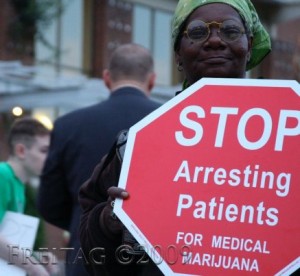6/23/2011 – The medical cannabis bill in Pennsylvania has been stalled in House and Senate committees but some procedural wrangling this week could put the issue back in motion. HB 1653 was first assigned to the House Health Committee chaired by Rep. Matthew Baker. At previous public hearings Baker was a vocal opponent of the measure. Today the bill was re-referred to the House Human Services Committee. This means much better chances that public hearings and/or a committee vote will be be scheduled.
This year the PA bill was also re-named The Governor Raymond P. Shafer Compassionate Use Medical Marijuana Act. This is to honor the former Republican governor who guided a commission for President Nixon on the topic of marijuana. In 1972 Shafer delivered a report that cannabis should not be classified with other narcotics and that personal possession should be decriminalized. There were also clear considerations about the medical use of cannabis in the report.
Previously the PA House Health and Human Services Commitee was combined and had 26 members. This year the committee was split into two separate entities.
At public hearings held in 2009 and 2010 testimony strongly favored the medical marijuana bill. Seriously ill residents, religious leaders, advocates, doctors and nurses spoke about the benefits of cannabis but the the bill never got a vote.
Patrick Nightingale, a Pittsburgh based attorney who serves on the Board of Directors at Pennsylvanians for Medical Marijuana (PA4MMJ), said today, ”Critically ill patients throughout the Commonwealth of Pennsylvania are begging merely that their voice be heard by their elected representatives.”
“The answer is not to ignore or bury the legislation but rather to give it a full and fair hearing,” Nightingale added.
Dr. Harry Swidler, an Emergency Medicine physician said at the 2009 hearings: “Marijuana is non-addicting. There is no physical dependence or physical withdrawal associated with its use. It is, from a practical standpoint, non-toxic. Marijuana is safer by some measures than any other drug. There is simply no known quantity of marijuana capable of killing a person.”
Pennsylvania’s medical marijuana bill is active in both chambers of the General Assembly. In April state senator Daylin Leach re-introduced SB 1003, but it remains stalled in the Senate Health and Public Welfare Committee chaired by Senator Patricia Vance. Advocates are hopeful that renewed action in the House will help the effort to have Senate hearings as well.
Derek Rosenzweig of Philadelphia spearheaded the PA4MMJ effort and testified at previous public hearings. He said in an email today: “With the introduction of legislation in the US Congress today that would remove marijuana from the federal Schedule I classification, states such as Pennsylvania may soon be free of federal interference in implementing medical marijuana laws. Activists across the state have been pushing for a vote. Everyone at PA4MMJ has been making phone calls and sending emails.”
Grassroots link www.pa4mmj.org
Chris Goldstein is a respected marijuana reform advocate. As a writer and radio broadcaster he has been covering cannabis news for over a decade. Questions? [email protected]







